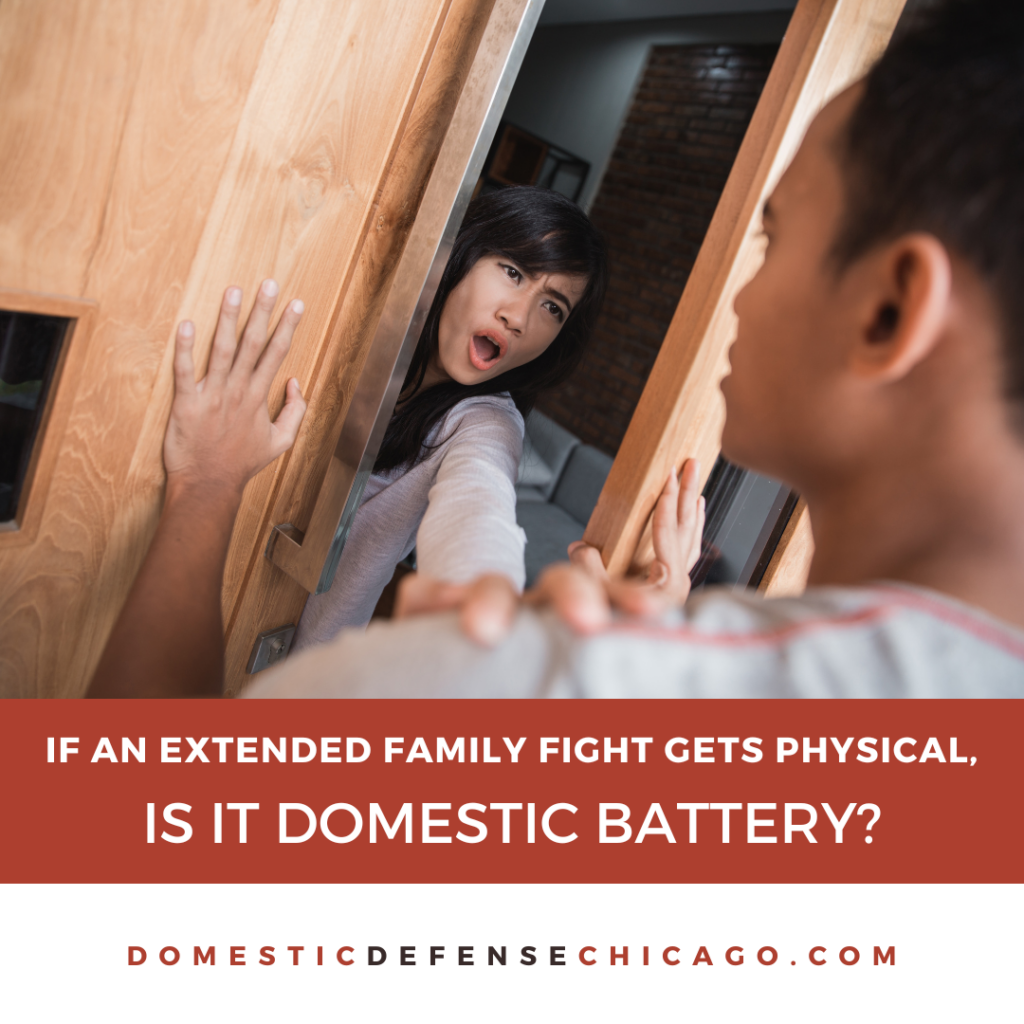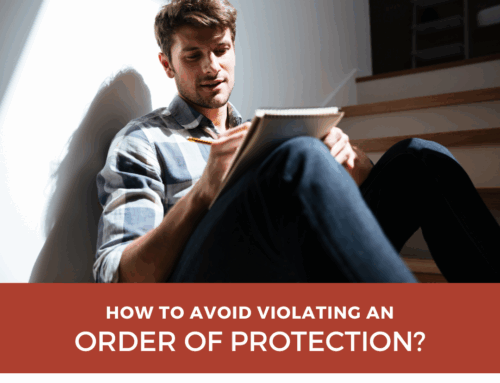Disagreements among family members can sometimes escalate beyond heated words. In Illinois, when an altercation turns physical, it may cross the line into the realm of domestic battery. Understanding how the law defines and addresses such situations is crucial, especially if you find yourself or a loved one involved in a family dispute that has led to accusations of physical violence. This guide will delve into the specifics of Illinois law regarding domestic battery within extended family conflicts and what steps to take if faced with such allegations.
If an Extended Family Fight Gets Physical, Is It Domestic Battery in Illinois?
When family gatherings go awry, it’s essential to know:
- Definition of domestic battery in Illinois
- Legal implications for extended family members
- Steps to take if accused of domestic battery
- How domestic battery charges affect family dynamics
- The role of a lawyer in domestic battery cases involving extended family
Here’s a closer look at each.
Definition of Domestic Battery in Illinois
Domestic battery in Illinois is a criminal offense that’s taken seriously by law enforcement and the courts. It’s defined as causing bodily harm to any family or household member or making physical contact of an insulting or provoking nature with any family member. This definition encompasses a wide range of individuals, including spouses, former spouses, parents, children, stepchildren, and other relatives by blood or marriage, even if they do not live together. It’s crucial to understand that any physical altercation, no matter how minor it may seem, can lead to a domestic battery charge if it involves family members or individuals in a domestic setting.
Legal Implications for Extended Family Members
When domestic battery involves extended family members, the legal implications can be severe. Illinois law does not differentiate between immediate and extended family in terms of the gravity of the offense. The charges can vary widely, from a Class A misdemeanor for a first offense, which could result in up to a year in jail and fines, to a Class 4 felony for subsequent offenses or if aggravating factors are present, leading to more severe penalties. The presence of a protective order, prior convictions, or severe injury can escalate the charges and penalties even further. It’s essential to recognize the potential legal consequences and the importance of legal representation.
Steps to Take If Accused of Domestic Battery
If you find yourself accused of domestic battery against an extended family member, the first step is to contact a lawyer who specializes in domestic violence cases. Do not attempt to resolve the situation on your own or contact the alleged victim, as this could worsen your situation. Your lawyer will guide you through the legal process, help you understand the charges against you, and advise you on the best course of action. They will also represent you in court, advocate on your behalf, and work to achieve the best possible outcome given the circumstances of your case.
How Domestic Battery Charges Affect Family Dynamics
The impact of domestic battery charges on family dynamics can be profound and long-lasting. Such charges can create a divide within the family, causing emotional distress, resentment, and a breakdown in relationships. The accused may be ostracized or shunned by family members, and the tension can extend to the wider family circle, affecting gatherings and communication. It’s important to address these issues with the help of a professional who can provide support and guidance through this challenging time.
The Role of a Lawyer in Domestic Battery Cases Involving Extended Family
A lawyer’s role in domestic battery cases is multifaceted. They are not only your advocate in the courtroom but also your advisor in managing the situation outside of legal proceedings. An experienced lawyer will help you navigate the complexities of the case, from examining the evidence and questioning the validity of the charges to negotiating with prosecutors and presenting your defense. They understand the sensitive nature of domestic battery cases and work diligently to protect your rights and reputation while striving to preserve family relationships whenever possible.
FAQ About Domestic Battery in Extended Family Situations
Check out these commonly asked questions about domestic battery in extended family situations. If you don’t see the answers here, please call our office and we’ll get you the information you need.
What Constitutes a Family or Household Member Under Illinois Law?
Under Illinois law, a family or household member includes spouses, former spouses, parents, children, stepchildren, and other relatives by blood or marriage, even if they do not live together.
Can I Be Charged With Domestic Battery If No Injuries Occurred?
Yes, you can be charged with domestic battery even if no physical injuries occurred. Unwanted physical contact of an insulting or provoking nature can also lead to charges.
What Should I Do If I’m Falsely Accused of Domestic Battery?
If you’re falsely accused, contact a lawyer immediately. Do not confront the accuser, as this could escalate the situation. Your lawyer will advise you on the appropriate steps to take.
How Can I Protect Myself Legally During a Family Dispute?
To protect yourself legally, avoid any physical contact during a dispute. If a situation escalates, remove yourself from the scene and seek legal advice as soon as possible.
What Are the Possible Defenses Against a Domestic Battery Charge?
Possible defenses include self-defense, lack of intent to cause harm, or proving that the incident did not occur as alleged. Your lawyer will help determine the best defense based on the facts of your case.
What Should I Do If a Family Member Accuses Me of Domestic Battery?
Contact a lawyer immediately and refrain from discussing the incident with anyone else, especially on social media. Follow your attorney’s advice closely, and do not contact the accuser, as this could be used against you.
Can I Be Charged With Domestic Battery If There Were No Witnesses?
Yes, you can be charged with domestic battery even if the incident was not witnessed by others. Charges often rely on the testimony of the involved parties.
How Can I Prove My Innocence in a Domestic Battery Case?
Your lawyer will collect evidence, witness statements, and other relevant information to build a strong defense. They may also challenge the credibility of the accuser’s account and present alternative explanations for the incident.
Will I Go to Jail for a Domestic Battery Charge?
Jail time is a possibility, especially if you have prior convictions or if the incident involved serious injury. However, each case is unique, and a skilled lawyer can often negotiate lesser penalties or alternative sentencing options.
How Can I Maintain Relationships With My Family After a Domestic Battery Charge?
It’s a delicate situation that requires careful handling. A lawyer with experience in family dynamics can provide advice on communicating with family members and potentially mediating the situation to repair relationships.
Navigating the complexities of a domestic battery charge within an extended family requires a careful and informed approach. With the right legal support, you can address the charges and work towards a resolution that considers both the legal implications and the well-being of your family relationships.
Do You Need to Talk to an Attorney About Domestic Battery Defense?
If you need to talk to a domestic battery defense attorney in Illinois, we’re here to help. Call us at 847-920-4540 now – we’ll be happy to give you a free consultation and talk to you about your options.







Leave A Comment
You must be logged in to post a comment.